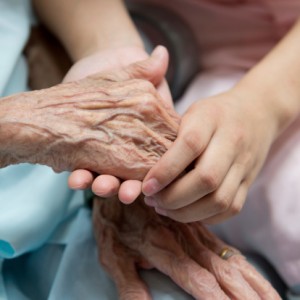 Social workers play a key role in the delivery of interdisciplinary health care. However, in the past decade, concerns have been raised about social work’s sustainability and contributions in a changing health care sector. Due to multiple factors, including spending cuts and the expansion of the roles of nurses, social work’s role in frontline health care situations has experienced a decline, or at least altered in a way that social workers usually perform administrative tasks. But do social workers bring unique training and values that are indispensable to frontline health care and patient navigation?
Social workers play a key role in the delivery of interdisciplinary health care. However, in the past decade, concerns have been raised about social work’s sustainability and contributions in a changing health care sector. Due to multiple factors, including spending cuts and the expansion of the roles of nurses, social work’s role in frontline health care situations has experienced a decline, or at least altered in a way that social workers usually perform administrative tasks. But do social workers bring unique training and values that are indispensable to frontline health care and patient navigation?
In a recent issue of the journal Health and Social Work, Joanie Sims-Gould, PhD, Kerry Byrne, PhD, Elisabeth Hicks, Thea Franke , and Paul Stolee, PhD, published their findings from a study of social workers dealing with patients with hip fractures (PHFs). PHFs experience a mortality rate seven times that of other older adults, and are among the most vulnerable and complex patients, from a biophysical and psychosocial perspective. Research shows that the depression, anxiety, social isolation, and socioeconomic hardship that accompany hip fracture recovery in older adults can affect outcomes such as mobility and social activity.
Using a strengths-based approach, the authors examined the key contributions made by social workers working with older patients with hip fracture as they strive to achieve successful care transitions. Twenty-five interviews with health care professionals (HCPs) were conducted and then analyzed using an analytical coding framework. Although social workers are vital, they are often underused and overlooked in the care of hip fracture patients. Based on the interviews, the authors sketched the important contributions that social workers make to care transitions after hip fracture, specifically:
- informational continuity;
- patient–HCP relational continuity;
- conflict resolution;
- mediation among family, patient, and HCP (for example, doctors and nurses);
- collaboration with family caregivers and community supports;
- relocation counseling.
The authors point out that:
[t]he findings demonstrate that social workers’ supportive services are both necessary and effective and go beyond just “medically” helping the patient. Not only is it necessary to ensure that patients are medically stable, but an awareness of their psychosocial (for example, substance abuse, fear, anxiety), environmental, and socioeconomic characteristics is also vital to properly support their transitions. Social workers bring a specific skill set and viewpoint to identify and address these concerns.
Of course, further research is needed in studying not only how social workers can and do help PHFs, but also other older patients with health care issues, and patients of all ages.



